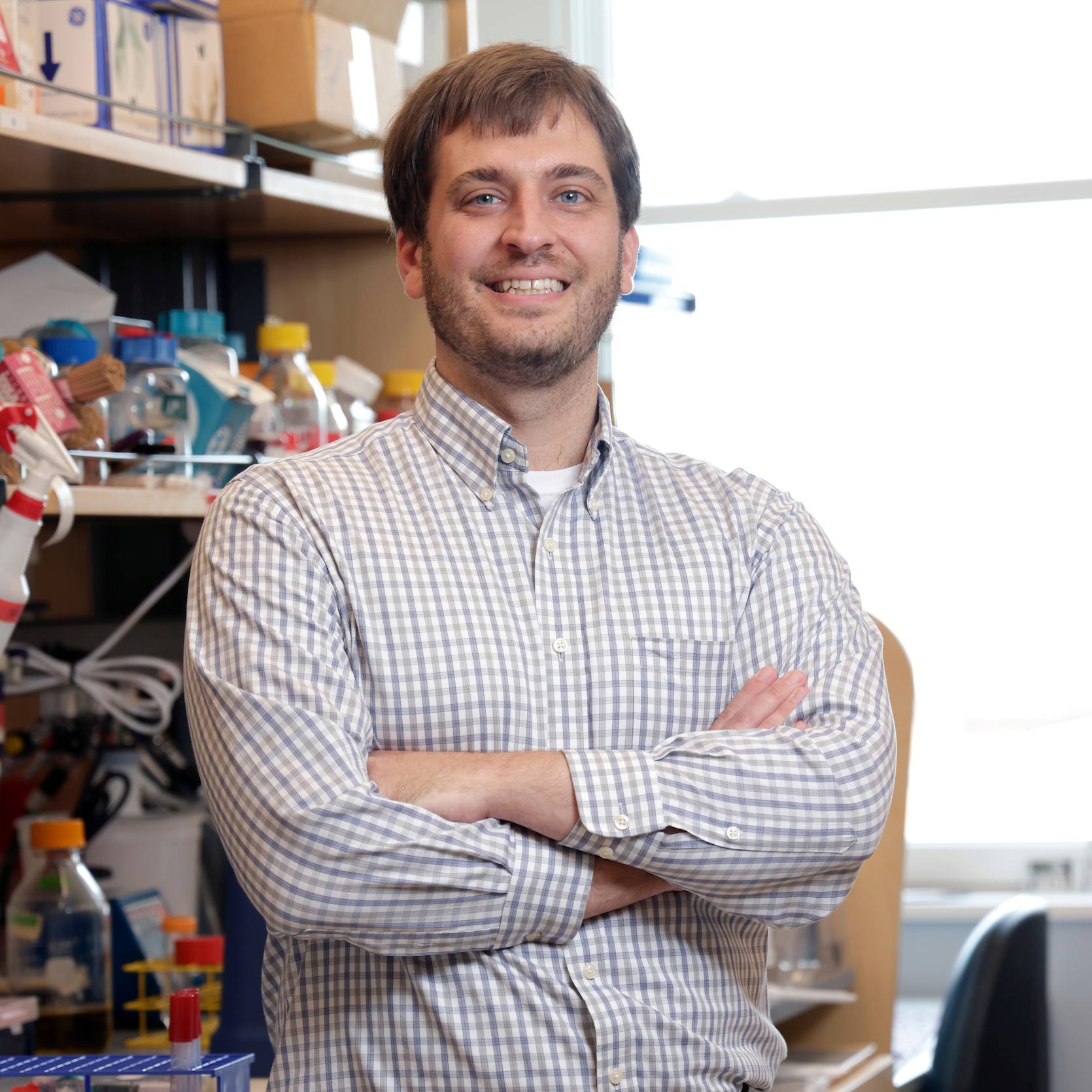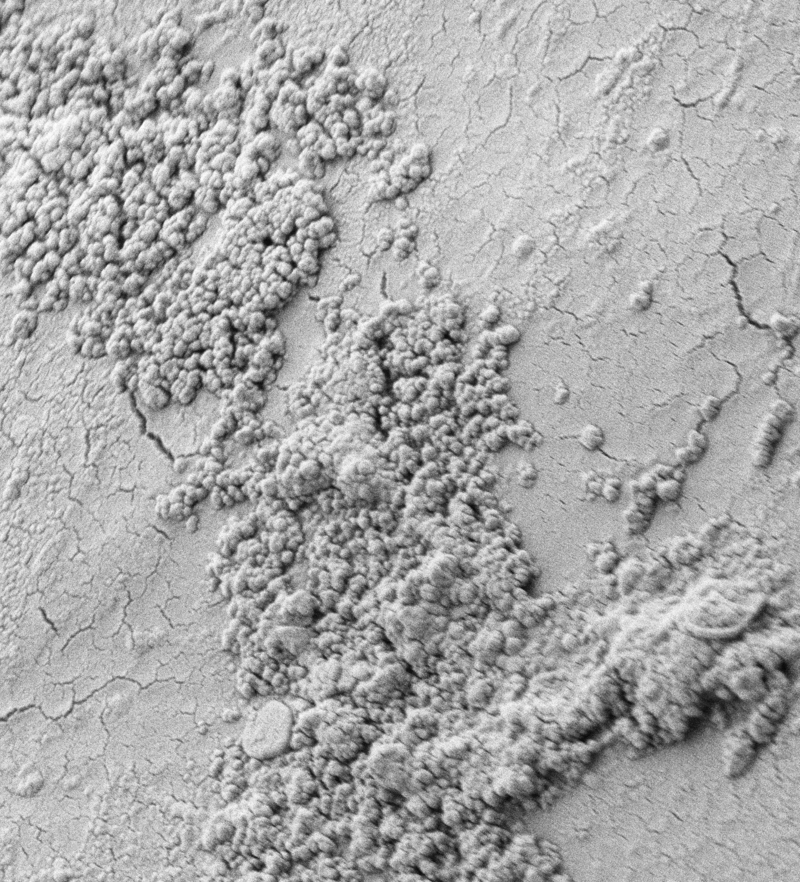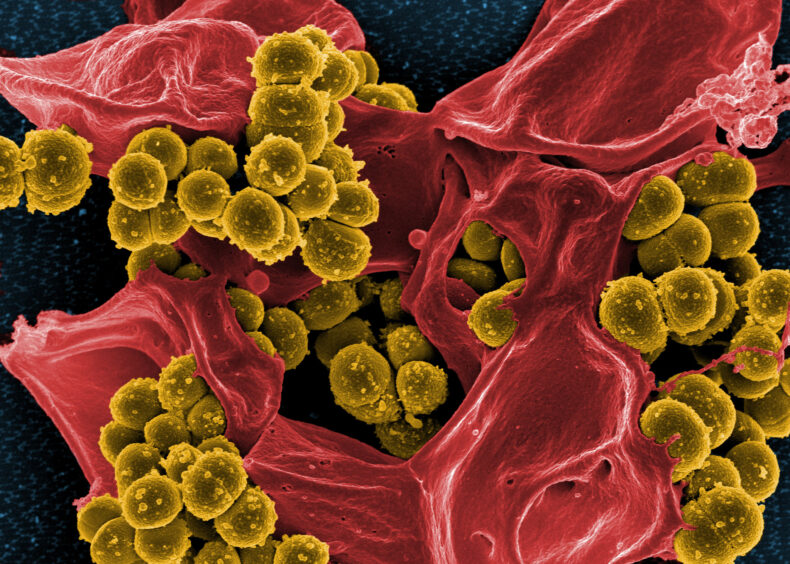Freiberg Lab
Research in the Freiberg laboratory is focused on improving outcomes in the treatment of bacterial infections by understanding what causes treatment failure.
Not only do we study antibiotic resistance, but we also focus on factors such as antibiotic tolerance, biofilm formation, and the host response so that we can gain a full understanding of the forces influencing bacterial persistence and treatment failure.

Dr. Jeff Freiberg is pictured in his lab at VUMC.

SEM image of S. aureus biofilms growing on an infected central venous catheter removed from a mouse infection model. Photo credit: Dr. Jen Gaddy
The Freiberg lab utilizes a combination of molecular biology, microbial genetics, immunology, clinical samples, in vitro systems, and animal models to investigate bacterial pathogenesis and antibiotic treatment failure.
Our research is primarily focused on Staphylococcus aureus, a pathogen associated with high rates of treatment failure and a leading cause of bacterial mortality.
Recent News

Bacterial metabolism plays role in staph antibiotic tolerance
Staph is a leading bacterial cause of death from bloodstream, bone and joint infections, in part because of high rates of antibiotic treatment failure.
Lab Philosophy
The Freiberg lab is committed to creating a supportive environment where science and scientists can thrive because all individuals feel welcome and safe. Scientific discovery requires an environment where people can confidently express their thoughts, ideas and beliefs, knowing that they will be received with mutual respect.
The best science occurs when curious individuals are empowered to take chances, ask questions, and solve problems. We aim to do this in the Freiberg lab by creating a fun, supportive environment where scientists of all levels and backgrounds learn, grow and flourish.